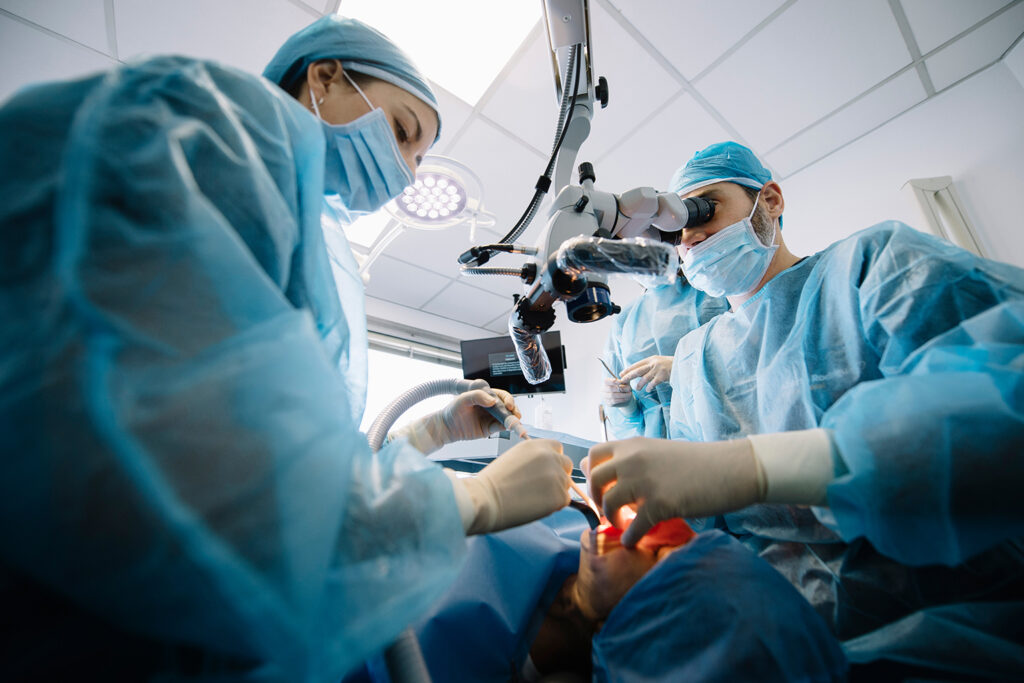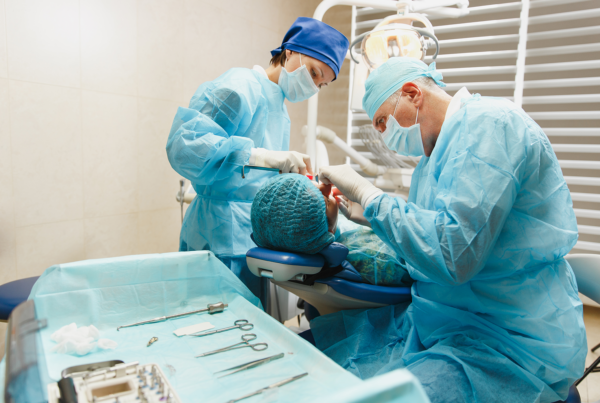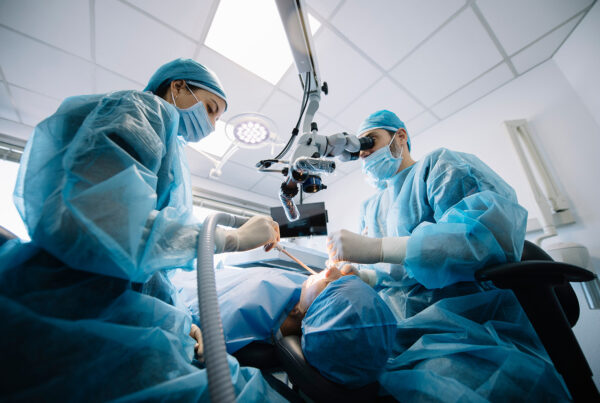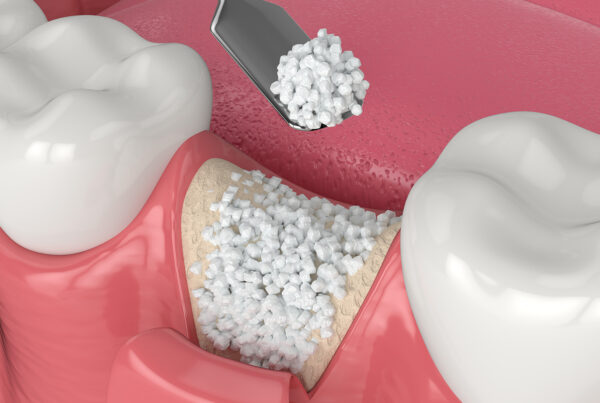While the idea of surgery might make some people feel uneasy, we believe that by understanding these procedures, you can make informed decisions about your dental care and feel more confident in your treatment choices.
Oral surgery can be a powerful solution for a wide range of dental issues, from impacted wisdom teeth to jaw realignment. These procedures can alleviate pain, improve function, and enhance the appearance of your smile. However, we know that the prospect of surgery can be intimidating. That’s why we’ve created this guide to help demystify the world of oral surgery.
Today, we’ll explore the different types of oral surgery procedures, explain what you can expect during each one, and offer tips for a smooth recovery. Our goal is to provide you with a comprehensive understanding of oral surgery so that you can feel confident and informed as you navigate your dental care journey.

What is Considered Oral Surgery?
Oral surgery refers to any surgical procedure that involves the mouth, teeth, or jaw, including the removal of wisdom teeth, dental implants, and jaw realignment surgery.
While many dental treatments can be performed in a routine office visit, there are some situations that require more advanced techniques and specialized expertise. Oral surgery is a branch of dentistry that focuses on these more complex procedures, often requiring sedation or general anesthesia to ensure patient comfort and safety.
Some common examples of oral surgery procedures include the extraction of wisdom teeth, which often require an incision in the gum tissue and removal of the tooth from the socket. Dental implants, which are used to replace missing teeth, require a surgical procedure to place the implant in the jawbone. Jaw realignment surgery, also known as orthognathic surgery, is a procedure that corrects a misaligned jaw and can involve reshaping or repositioning the bones.
It’s important to note that not all dental procedures are considered oral surgery. Routine cleanings, fillings, and root canals are typically considered general dentistry procedures, while more complex treatments fall under the category of oral surgery.
How Do You Prepare for Oral Surgery?
Preparing for oral surgery involves a combination of careful planning and communication with your dental team to ensure a smooth and successful procedure.
If you’ve been scheduled for oral surgery, there are several steps you can take to help prepare yourself for the procedure and ensure a successful outcome.
- First and foremost, be sure to follow any instructions provided by your dental team regarding fasting, medications, and other preparatory measures. You may be asked to avoid food or drink for a certain period of time before the procedure or to adjust your medication regimen.
- It’s also important to arrange for a trusted friend or family member to accompany you to the procedure and drive you home afterward, as sedation or anesthesia can impair your ability to drive or operate machinery. Be sure to wear comfortable, loose-fitting clothing and avoid wearing any jewelry or accessories that may interfere with the procedure.
- Finally, don’t hesitate to ask your dental team any questions or express any concerns you may have prior to the procedure. They can provide valuable guidance and support to help you feel more comfortable and confident throughout the process.
How Long Does it Take to Recover from Oral Surgery?
The recovery time for oral surgery varies depending on the procedure, but generally ranges from a few days to a couple of weeks.
Recovery from oral surgery can be a daunting prospect, but it’s important to remember that everyone’s experience is different. The length of your recovery period will depend on a variety of factors, including the type of procedure you underwent, your age, overall health, and adherence to post-operative instructions.
For more minor procedures, such as tooth extractions or implant placement, you may be able to return to your normal activities within a few days, with full recovery taking up to a week or two. More complex procedures, such as jaw realignment surgery, can require a longer recovery period of several weeks or even months.
During your recovery period, it’s important to follow your dentist’s instructions closely, which may include taking prescribed medications, avoiding certain foods, and maintaining good oral hygiene practices. You may experience some pain, swelling, and discomfort during the first few days after surgery, but these symptoms can typically be managed with pain relievers and rest.
By understanding the recovery process and taking steps to care for yourself properly, you can help ensure a smooth and successful outcome after oral surgery.
Can I Go Straight to an Oral Surgery?
No, it’s important to have a comprehensive evaluation and consultation with a qualified dental professional to determine if oral surgery is the right course of action for your dental issue.
While oral surgery can be a highly effective solution for many dental issues, it’s important to remember that it’s not always the first line of treatment. Before considering surgery, your dental team will likely conduct a thorough evaluation of your oral health and discuss other treatment options that may be less invasive.
For example, if you’re experiencing pain or discomfort due to impacted wisdom teeth, your dentist may first recommend a course of antibiotics and pain relievers, as well as a soft food diet, before considering surgery. Similarly, if you’re considering dental implants to replace missing teeth, your dentist may first explore options like bridges or partial dentures.
In some cases, oral surgery may be necessary to address more complex dental issues, such as jaw realignment or removal of impacted teeth. In these cases, your dentist will work closely with you to create a personalized treatment plan that takes into account your unique needs and goals.
By taking a collaborative approach to your dental care, you can feel confident that you’re making informed decisions about your oral health and receiving the best possible care.
Conclusion
We hope this guide has given you a better understanding of oral surgery procedures and how they can benefit your oral health. By knowing what to expect during the procedure and recovery process, you can make informed decisions about your dental care and feel more confident in your treatment choices.
At Encino Dental Studio, we offer a range of oral surgery procedures, from tooth extractions to jaw realignment surgery. Our team of experts is committed to providing the highest quality of care and personalized attention to each of our patients. We believe that by taking a collaborative approach to dental care, we can help you achieve a healthy, beautiful smile that you can be proud of.
If you have any questions or concerns about oral surgery or any other aspect of your dental care, please don’t hesitate to contact us.








